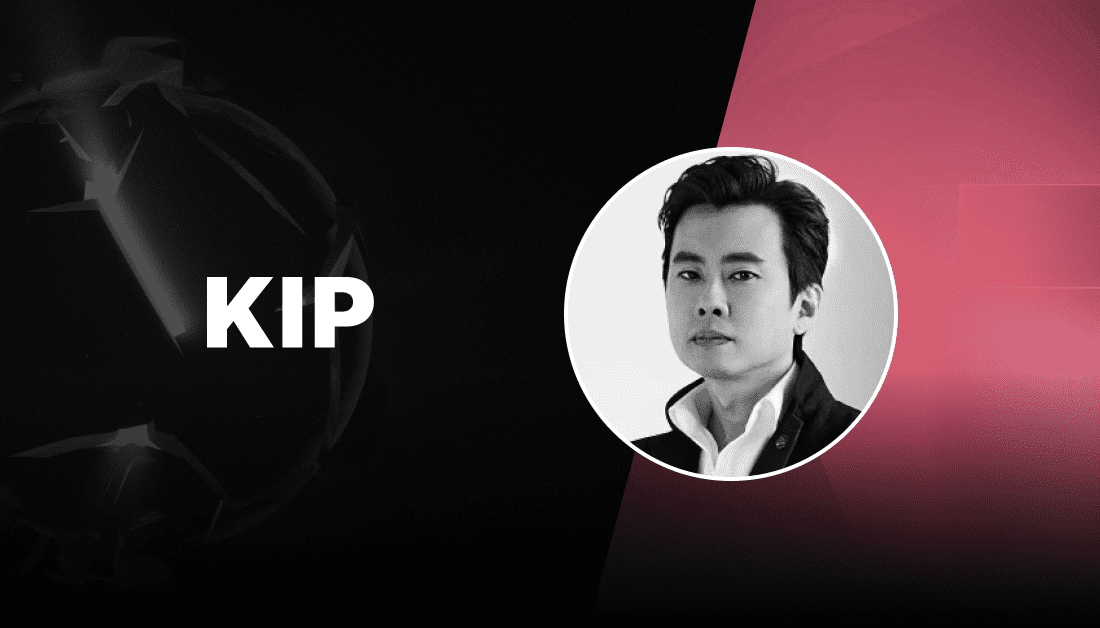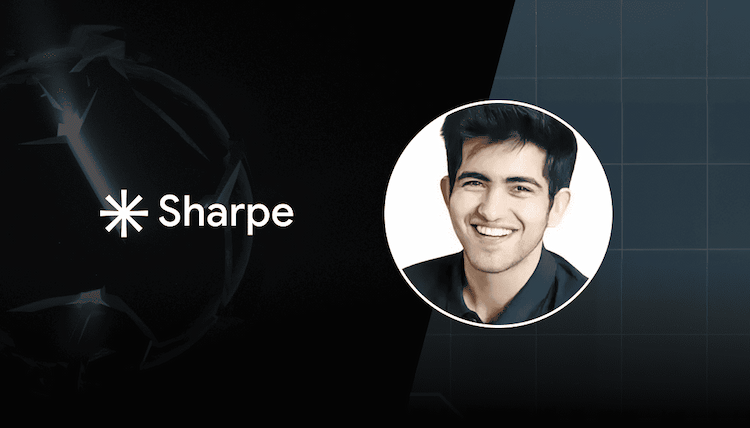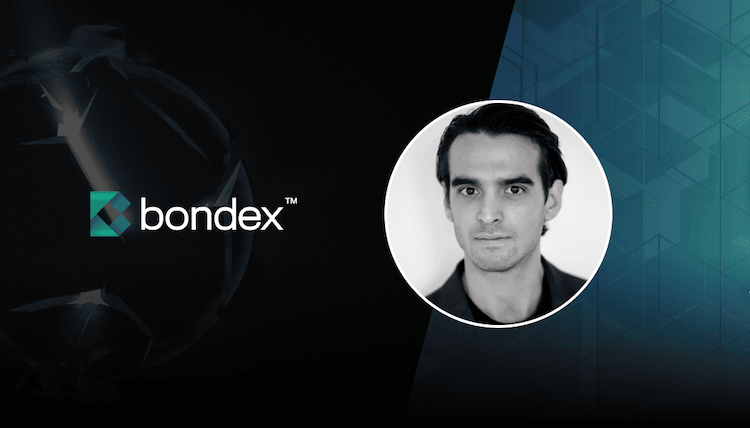Founder Stories
Julian Peh - Founder of KIP Protocol
Here you find our latest interview with Julian Peh - Founder of KIP Protocol, a decentralised AI framework unlocking digital property rights of Knowledge Assets in the AI-powered future.

Hello Community,
We’ve got some brilliant projects in our portfolio and want to tell you more about the founders and teams behind them. You will have the opportunity to learn more about specific projects through our interviews on a regular basis. Feel free to post any questions you may have further down in the comments section.
In today’s interview, we have ulian Peh - Founder of KIP Protocol. Let’s go!
Hi Julian, let’s start with a short introduction about yourself and your journey in the Web3 space.
I have been an internet entrepreneur since 1998. I founded several companies that developed technologies in ad-tech, O2O tracking, big data analytics etc. I exited most of these Web1 investments by 2015, with some of the deals being quite notable in Asia during their time. I took a short sabbatical for a year after which I became a VC/PE investor into crypto, robotics and AI. I have been active in Web3 investment and project consulting since 2016, lending my experience in tech entrepreneurship to the startups I invested in.
But in 2022, I sensed that there was something big brewing at the confluence of AI & Web3, and I took the plunge in as an entrepreneur again with KIP Protocol.
You had a vision for KIP in 2023, a unique platform designed to support Web3 projects in their AI development. Could you elaborate on this approach and why you decided to focus on AI?
Why focus on AI is the easy question: To me it’s crystal clear that AI is going to be the most significant technological disruption in humanity’s development. I think it’s possible indeed that it’s the last man-made technology milestone - as future milestones may be achieved by AI!
As for why we did it: clear monopolies are forming in AI, with a few companies like OpenAI training their giant models on all of our collective data and knowledge, and also completely capturing the regulatory process.
If this continues, we will own nothing in the AI powered future. We are all presently victims of a great knowledge heist, and in future will be relegated to being mere consumers of AI with no economic participation rights. This is ironic, as the aforesaid giant models are trained on our data in the first place.
It’s clear to us that we must fight for decentralisation in AI. Everybody needs to get back their ownership rights if we are to have a voice in the AI powered future.
This really was the driving motivation for us. We don’t think it’s right, and the AI development path we’re currently on, does not result in a future my team or I want to live in.
To have a vibrant deAI ecosystem, we need end users. And to have users we need AI products that would be loved and utilised by end users. Thus we took the opinion that getting more AI apps and products in deAI is the necessary and critical first step.
So when we discovered there was a lack of infrastructure and tooling serving AI developers to make deAI products, we built KIP Protocol to be that infrastructure helping AI devs deploy and monetise their work in Web3.
This played to our strengths as experienced commercial practitioners of both AI and Web3.
What are the unique characteristics of your decentralized base layer? And how do you envision its potential impact on the advancement of AI in the crypto space (or the other way around)?
We are solving problems that seem to have been neglected by others so far: namely deployment & monetisation of AI assets in Web3.
When AI builders wish to deploy functioning deAI products, they use KIP’s contracts and infrastructure as the complete toolset to solve the following base level problems:
- Deployment Problem: easily tokenising / token gating AI assets such as (AI Apps, Models and Datasets)
- Connectivity Problem: Ensuring data flows between the models, applications and assets, even if owned by different parties
- Monetisation Problem: Ensuring proper recording, accounting and settlement of interactions between AI assets, even if owned by different parties
By solving these 3 problems: KIP effectively makes it possible for business ecosystems to be created in decentralised AI, as builders can not only deploy products, they can be assured of getting paid.
Solving this results in the biggest possible impact for deAI.
We believe that without solving these problems, it is next to impossible to have a true decentralised AI space. If we do not solve the bread and butter / survival issues of AI devs, any decentralisation movement will be unsustainable because it does not result in creation of new economic value for the people creating the products that are serving users..
What is the main advantage for projects to deploy on your layer? And in which way do you plan to continue to attract and retain new users?
1) KIP is extremely easy to use for AI devs, because we used our long experience as AI devs to build a web3 infrastructure and tooling that we could easily use. It is built for them.
2) KIP serves model owners, AI app owners and data / knowledgebase owners, instead of focusing on just one aspect. This makes it easy for AI products to be “assembled” easily using the KIP framework, and be ready for marketing and monetisation..
3) KIP’s settlement layer uniquely handles the problem of monetisation by ensuring different AI assets owned by different parties, can still collaborate and connect, and the splitting of the revenues will be transparent and automated.
Our plan is to launch larger projects first on KIP first, as the larger projects give us an opportunity to stress test our infrastructure more, and also provide more attention on what KIP does, and can do. KIP however is versatile enough to serve solo devs as well, and we are launching hackathons to encourage solo AI app developers to take their first steps in Web3 by using KIP.
A couple of weeks ago, you launched Open Campus U (OCU) in partnership with Open Campus, a decentralized education platform set to revolutionize the education system. Could you tell us more about it and the main goal of this exciting initiative?
We are partnering with Animoca’s Open Campus to launch Open Campus U, an AI powered education platform that will serve professors, universities and university students.
Education is an $8 trillion market and involves hundreds of millions of people, and the use cases of AI in education are extremely obvious. Indeed we have been serving universities as AI clients since 2019, so it’s a space we know well.
Open Campus and KIP Protocol are fully aligned in our goals to unlock new opportunities for educators to thrive in the digital economy, through the integration of KIP’s cutting edge AI tech to meet the evolving needs of both learners and educators worldwide.
We hope to enhance educational experiences by making them more adaptable and personalized. Blockchain technology can empower educators by enabling them to transform their knowledge into capital assets that can be owned, traded or monetized.
We are hugely excited about the opportunities and will dedicate considerable resources to deploy KIP in education through Open Campus U. There’s so much more we have not announced so please stay tuned.
You announced a new partnership with Lingo in June of this year. How will this strategic collaboration enhance user engagement and reward systems within the SocialFi space, and what potential impacts could it have on the broader Web3 ecosystem?
Perhaps uniquely among deAI projects, KIP has been very active and reasonably successful in the SocialFi space. My team just informed me we may have one of the top 3 social fi platforms currently active.
We think one necessary skiill of being a Web3 project is to be able to use incentives to reward and grow communities. Web3 token or NFT communities are a critical stakeholder of any Web3 project, on par with the users / customers of the product itself.
I recognise this and I try to always strike the right balance of community benefits (which may tend to be more short term) and long term project benefits (which does benefit the community too)
It’s not always easy striking this balance but my team and I do try our hardest to.
What do you think it’s the biggest challenge for AI in the Web3 space at the moment? How long will it take to overcome it?
I think it’s a general lack of awareness that there’s a great knowledge heist going on now, and that all of us are being robbed by the Big AI monopolists to train their models.
Any one who is aware, will not be so easily distracted by the shiny new things that the monopolists are pushing out on a monthly basis to divert our attention.
Decentralisation of AI is not just a good option, but really the ONLY option to anyone who sees where this current path leads.
I can’t see the future but I can tell you that my entire team at KIP are fighters and will battle hard to build the AI future we want to live in.
Do you want to share anything about KIP's future plans, including potential partnerships and new launches?
The next 4 to 8 weeks will be packed with product launch related news, and community activities.
KIP will be onboarding a leading entertainment-focused AI platform into Web3 with an extremely large user base very very soon. This is hugely exciting and will grow our actual user-base significantly.
On the back of our partnership with Open Campus, we will also be launching a deep partnership with another large Web3 projects to serve as their Official AI Partner, to come up with AI use cases for their platforms.
Lastly, KIP has dropped NFT collections previously, and we will be launching our long awaited initiatives to integrate those into a wider long term membership program. It will be code named “KIPVERSE”.
The next few weeks will be packed with activity for KIP, so please keep close watch on us!
--
Thanks a lot for your time Julian. Good luck with your projects!
You can check the social media profiles of the project: Website | Twitter | Telegram | Discord
The Morningstar Ventures Team


